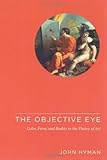I normally don't call people out. But You're a MIT Philosophy Major spouting off. You know how bad these arguments are. This is my problem. With this type of background there is no excuse. I'm happy to give the benefit of the doubt to a normal HN reader who may be lacking in technicals or experience. English as a second language. But these argument forms are rhetorical garbage.
I'm not sure in what decade you were at MIT. Maybe that is the problem. Maybe these simple-by-modern-standard ideas, techniques, and technologies are beyond than your training in photography? You owe more to the HN community than that. You owe everybody here some intellectual honesty.
This is the 21st century. We are deconstructing perception and re-constructing it image by image, pixel by pixel. And tools and techniques that have been field tested for two decades. With cognitive psychology in mind. Its a long way from Minor White's Darkroom. These are now the tools of the Documentary photographer.[1]
I happen to have first-hand experience with this. Years worth of training. In school and in the field.
I don't need to "argue" a point when demonstrating or illustrating a standard technique, it's superflous. You confuse actual experience with an "affected air of authority."
The point of my contribution on this thread is to share some experience. So, if nothing else, people can talk more precisely. About what they are looking Time for more enjoying. ______________ [1] A Rigorous and interdiscilinary book, written by a Philosopher: The Objective Eye: Color, Form, and Reality in the Theory of Art (Oxford, 2006) http://www.amazon.com/The-Objective-Eye-Reality-Theory/dp/02...


The Objective Eye: Color, Form, and Reality in the Theory of Art
http://www.amazon.com/The-Objective-Eye-Reality-Theory/dp/02...
-edits for context-
[NB: Also disregard the amazon ratings]